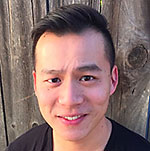
I used to be more hopeful, when I bought into the model minority myth. I believed that things would just work out if I put my head down and tried harder.
But then, I learned how harmful and incorrect the myth was, how it dehumanizes both Asian American and Pacific Islanders, as well as other people of color, and how it pits minority groups against each other instead of pursuing collective liberation. I realized it wasn’t really about whether I personally tried harder or not — racism and systemic injustices have privileged a select few, the dominant white culture in America.
Recognizing these truths made it difficult to have hope. It was like seeing a stray thread on a piece of cloth — the moment I started to pick at one, I would notice another. Pretty soon, things were unraveling left and right. And in recent months, the persistence of oppressions — such as the lack of power in Puerto Rico, the lack of clean water in Flint, Michigan, the resurgence of overtly white supremacist actions — have made me contemplate whether leaving America and living somewhere in Asia would make things easier. In truth, I know that attempting to escape America wouldn’t alleviate these pressing realities.
Given the evangelical culture I grew up in, I anticipate that some faith communities will say that the present-day injustices that have caused me to despair are symptoms of a fallen world, and that all we can do is to put our hope in Jesus. However, this mentality and “exhortation” avoids coming to terms with the evils of systemic oppression and sin, and cheapens what it means for Jesus to be the Messiah.
Jesus came to take on the sins of the world. But perhaps more importantly, Jesus came to give life, the full life of shalom and restoration. And the sins Jesus decried were social and systemic, such as greed, imperialism, and sexism. Jesus did not confront these sins only through his death (which was indicted upon him by an imperial power), but he called his followers to resist and to love counterculturally in the here and now. The kingdom of God is already among us!
This is the kind of hope I need and aspire to live into. A hope that does not passively wait for future redemption and liberation, but a participatory, active hope that lives into the vision of love and community with our neighbors and in concert with our God.
As I, and we in our respective communities, wrestle with the tension of maintaining hope in a hopeless world, may these stories that articulate different ways to imagine hope be of hope to us.

Daniel Chou (he) serves as the editor-in-chief of Inheritance and is also one of the magazine’s founders. He holds a Master of Divinity from Fuller Theological Seminary. Outside of Inheritance, he is co-founder of Winnow+Glean and enjoys roasting coffee. He posts sporadically on Instagram @dchou and even more sporadically on Twitter @danielchou.

Wonho Frank Lee is a freelance photographer who primarily shoots for Eater LA and recently received his MFA from Cal State LA. Follow him on Instagram @WonhoPhoto.